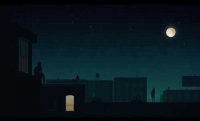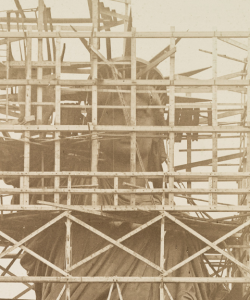Escape the midsummer heat and spend time in the shade submitting to fiction, poetry, and nonfiction contests. With deadlines of either July 14 or July 15, these contests include several opportunities for writing on a theme, including a prize for writing about health and illness and a prize for travel writing. All offer a cash prize of $1,000 or more.
Bellevue Literary Review Prizes in Poetry and Prose: Three prizes of $1,000 each and publication in Bellevue Literary Review are given annually to a poet, a fiction writer, and a creative nonfiction writer for works about health, healing, illness, the body, and the mind. Jen Bervin will judge in poetry, Dan Chaon will judge in fiction, and Kay Redfield Jamison will judge in creative nonfiction. All entries are considered for publication. Deadline: July 15. Entry fee: $20.
Cincinnati Review Robert and Adele Schiff Awards: Three prizes of $1,000 each and publication in the Cincinnati Review are given annually for a poem, a short story, and an essay. The editors will judge in nonfiction. All entries are considered for publication. Deadline: July 15. Entry fee: $20 (includes subscription).
Comstock Review Muriel Craft Bailey Award: A prize of $1,000 and publication in Comstock Review is given annually for a single poem. Patricia Smith will judge. All entries are considered for publication. Deadline: July 15. Entry fee: $27.50 (or $5 per poem via postal mail)
Los Angeles Review Literary Awards: Four prizes of $1,000 each and publication in Los Angeles Review are given annually for a poem, a short story, a short short story, and an essay. Francisco Aragón will judge in poetry, Kristen Millares Young will judge in fiction, Ellen Meeropol will judge in flash fiction, and Aimee Liu will judge in nonfiction. Deadline: July 14. Entry fee: $20.
Nowhere Travel Writing Contest: A prize of $1,000 and publication in Nowhere is given twice yearly for a poem, a short story, or an essay that “possesses a powerful sense of place.” Unpublished and published pieces that have not previously been chosen as a contest winner are eligible. Porter Fox will judge. All entries are considered for publication. Deadline: July 15. Entry fee: $15.
Rattle Poetry Prize: A prize of $15,000 and publication in Rattle is given annually for a single poem. A Reader’s Choice Award of $5,000 is also given to one of ten finalists. All entries are considered for publication. Deadline: July 15. Entry fee: $25 (includes subscription).
Regal House Publishing Petrichor Prize for Finely Crafted Fiction: A prize of $1,000 and publication by Regal House Publishing will be given annually for a novel. The editors will judge. Deadline: July 15. Entry fee: $25.
The Story Prize: A prize of $20,000 is given annually for a short story collection written in English and published in the United States in the current year. Two runners-up receive $5,000 each. The $1,000 Story Prize Spotlight Award is also given for an additional short story collection “of exceptional merit.” Larry Dark and Julie Lindsey will select the three finalists and the Spotlight Award winner; three independent judges will choose the Story Prize winner. July 15 is the deadline for books published in the first half of the year. The deadline for books published during the second half of the year is November 15. Entry fee: none.
Visit the contest websites for complete guidelines, and check out the Grants & Awards database and Submission Calendar for more contests in poetry, fiction, and creative nonfiction.











